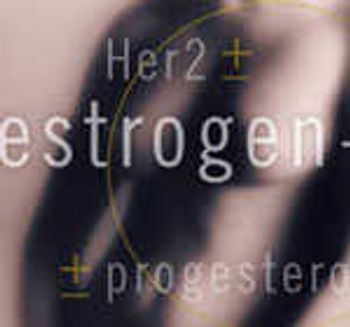
Within the past two decades, a movement emerged to integrate natural healing methods--exercise, acupuncture and message--with traditional cancer therapies.

Within the past two decades, a movement emerged to integrate natural healing methods--exercise, acupuncture and message--with traditional cancer therapies.

Breast cancer prevention trial and Dacogen approved for myelodysplastic syndromes.

A brief from this year's San Antonio Breast Cancer Symposium discusses new research from eight clinical trials that studied whether or not certain factors help to predict response to neoadjuvant therapy prior to surgery.

A brief from this year's San Antonio Breast Cancer Symposium discussing new data showing that patients who receive radiation after having a mastectomy have a lesser chance of recurrence in certain early-stage cancers.

A brief from this year's San Antonio Breast Cancer Symposium discussing IBIS-1, a trial that examines tamoxifen's effectiveness as a breast cancer prevention drug, and how breast density is effected by Tamoxifen.

A brief summarizing significant news from this year's San Antonio Breast Cancer Symposium regarding the TransATAC study's results showing that Oncotype DX may now be available for use in women who have taken aromatase inhibitors.

A brief discussing findings from this year's San Antonio Breast Cancer Symposium showing that research suggests that the drug Zometa may provide patients with reduced bone loss and a lesser chance of recurrence.

A brief discussing investigation agent RAD001 (everolimus), a drug currently approved to treat kidney cancer, and the findings that now show the drug may be used to treat breast cancer.

An overview of the Susan G. Komen for the Cure awards held at this year's San Antonio Breast Cancer Symposium.

A brief look at how micrometasteses of the breast are being treated and the results from the MIRROR study which looked at whether or not micrometastases are predictive of recurrence.

The American Association of Cancer Research has joined the Cancer Therapy Research Center at the University of Texas Health Science Center at San Antonio, and the Baylor College of Medicine in putting on this year's San Antonio Breast Cancer Symposium.

New law protects health benefits for ill students.

Young breast cancer survivors meet in Dallas.

Trial confirms finasteride prevents prostate cancer.

Treanda and Sancuso patch approved.

Only 10 percent of cancers are due to inherited mutations.

Avastin is one of a new class of drugs that works by targeting the newly formed blood vessels that develop around tumors, a process called antiangiogenesis—recent studies have seen positive survival results in colon cancer and now lung cancer.

Bladder cancer has one of the highest recurrence rates, but there are many tests and ways to monitor for early detection including, urine cytology, cystoscopy, BladderChek, UroVysion, FISH and ImmunoCyt Bladder Cancer Monitoring Test.

Research focusing on early detection and prevention of prostate cancer with chemoprevention drugs such as Proscar and Avodart and dietary prevention with vitamins and supplements such as vitamin E and selenium.

Women with hormone-negative breast cancers may not be able to benefit from tamoxifen and aromatase inhibitors, but a subset of patients with HER2-positive breast cancer are able to take advantage of advances such as Herceptin and Tykerb. For women with hormone- and HER2-negative cancers, or triple negative, new research into what drives these cancers and prevent recurrence may increase treatment options and benefit this population.

With the Food and Drug Administration requesting more information about the efficacy of Provenge, an investigational vaccine for hormone-refractory prostate cancer and what many expected to be the first vaccine approved to treat cancer, one may wonder when a therapeutic vaccine will finally reach patients outside clinical trials. But as researchers learn more about the immune system, develop better vaccines, and find how best to study their effects on cancer, vaccines are still expected to be an important player in the future of cancer therapy.

Cancer research pushes forward as scientists find creative ways to attack cancer.

Following the approval of breast cancer drug Tykerb and a pediatric leukemia drug, researcher Neil Spector, MD, works on ways to better develop and test cancer drugs


Educational conference for thyroid cancer patients, survivors, and caregivers.

Olympic swimmer Eric Shanteau and Stand Up To Cancer.

American Cancer Society launches online video sharing.

New law funds pediatric cancer research.

Study shows smoking cessation aids and advice not reaching minorities.

Dana-Farber Cancer Institute’s survivorship clinic.